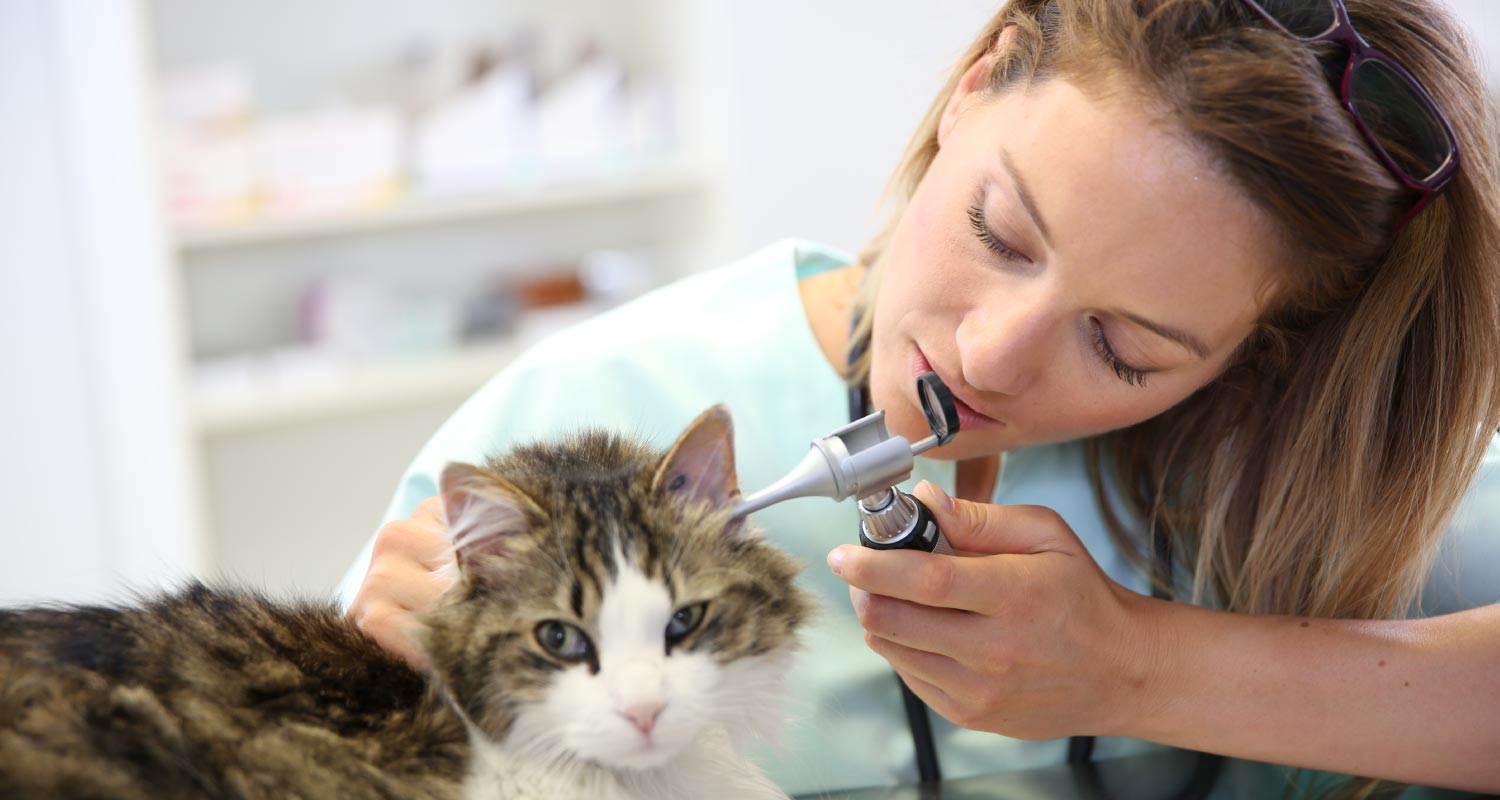HEALTH & WELLNESS

TRENDING

SIGN UP and Start Receiving
Our Monthly Newsletter,
The Chronicles
Ear Infections in Cats: Signs, Causes, Diagnosis, Treatment & Prevention

Luckily, when it comes to ear infections, cats are not as vulnerable as dogs. Still, when they do get them, the effects can be painful and even cause damage if left untreated.
SIGNS AND SYMPTOMS OF EAR INFECTIONS IN CATS
Any or a combination of the following can indicate ear infection in cats:
- Hearing loss
- Wax buildup
- Strong odour
- Uneven pupil size (anisocoria)
- Disorientation / loss of balance
- Scratching or pawing at painful ear
- Black, dark brown or yellow discharge
- Red and/or swollen ear flap and/or ear canal
- Shaking or tilting head in direction of affected ear
- Damage/injury from scratching his or her own ears
- Discharge that resembles coffee grounds (associated with mites)
- Show of discomfort when the base of the ear is touched
- Ear canal opening featuring dark or crusty debris
COMMON CAUSES OF EAR INFECTIONS IN CATS
- Overgrowth of yeast
- Ear mites
- Allergies (food or inhalants)
- A foreign object that becomes lodged in the ear
- Overgrowth of bacteria
- Abscess caused by a bacterial infection (typically from a cat bite)
LESS COMMON CAUSES OF EAR INFECTIONS IN CATS
- Diabetes mellitus
- Ruptured eardrum
- Incorrect ear cleaning
- Autoimmune diseases
- Environmental irritants such as pollution or tobacco smoke
- Immune suppressing diseases e.g. feline leukemia virus (FeLV) and feline immunodeficiency virus (FIV)
- Benign or malignant tumours
DIAGNOSING EAR INFECTIONS IN CATS
- Review a detailed medical history provided by the pet owner
- Complete physical exam performed by veterinarian, including examination with an otoscope
- Additional tests and procedures if needed (e.g. cytology or a culture)
TREATING EAR INFECTIONS IN CATS
Treatment will be customised to the affected cat’s need and may include:
- A liquid antibiotic for the ear
- Oral antibiotics
- Ear cleaning solutions
- Cortisone if the ear is very inflamed
- Surgery in chronic recurrent cases
PREVENTING EAR INFECTIONS IN CATS
- Keep your cat’s ears dry
- Be on the lookout for early signs of irritation
- Always consult your veterinarian if you have any concerns
- Cats that are at higher risk of developing infections should be kept indoors
IMPORTANT: DON’T TRY TO TREAT YOUR CAT’S EAR INFECTION AT HOME.
Related Articles



PLAU012-petlifeau-diabetes-banner-ad-sets-01-FA
PLAU012-petlifeau-diabetes-banner-ad-sets-02-FA
PLAU012-petlifeau-diabetes-banner-ad-sets-03-FA





